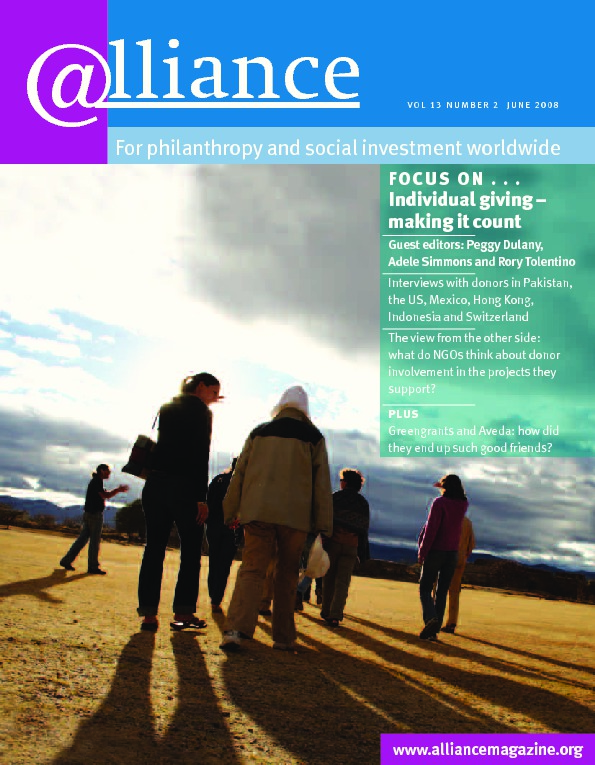Fondation Mérieux was founded 40 years ago, in 1967, by Dr Charles Mérieux in homage to his father Marcel. According to Roots for Life, the booklet produced to celebrate the Foundation’s 40th birthday, ‘Charles’s goal was to make the Foundation a forum, a melting pot in which thoughts and ideas on the public health issues it addressed could come together’. ‘What seemed essential to me,’ he wrote, ‘was to bring scientific discoveries made within the secret confines of laboratories within reach of everyone. And I do mean EVERYONE.’
This ambition, to bring scientific discoveries within reach of everyone, reflects very well the vision of a family business group and a family foundation working together to improve global health and to reduce the burden of poverty-related infectious diseases (HIV/AIDS, tuberculosis, malaria). In 1974, for example, Fondation Mérieux and the Mérieux Institute (the family vaccine business) joined forces to control a meningitis epidemic in Brazil, and 100 million Brazilians were vaccinated. Two years later, the Foundation obtained public interest status in recognition of its achievements.
Charles’s son Alain is now President both of Fondation Mérieux and of Mérieux Alliance, the family’s holding company, which brings together five international companies in the field of health, including diagnostics, food testing, gene therapy and vaccination: bioMérieux, Transgene, Silliker, ABL and Shanta.
In 2001, Alain Mérieux and his wife Chantal created a second foundation in memory of their son Rodolphe, Fondation Rodolphe Mérieux (renamed Fondation Christophe et Rodolphe Mérieux after Dr Christophe Mérieux passed away in 2006). Organized under the aegis of Institut de France, whose Chancellor at the time, Pierre Messmer, former French Prime Minister, supported its establishment. It has its own financial resources, owning a one-third stake in the Mérieux Alliance group. It works closely with Fondation Mérieux to fight infectious diseases in developing countries by empowering local actors to meet local needs – something to which both Rodolphe and Christophe Mérieux were strongly committed.
Fondation Mérieux is currently active in more than eight countries, promoting local research, developing local laboratory capacity, rehabilitating or building health structures in poor rural settings, training public health workers, offering diagnostic, treatment and social reintegration to infected populations. Fondation Mérieux devotes a lot of resources to sharing scientific information with the rest of the world through its conferences and symposia, many of which are held at les Pensières Conference Centre on the Mérieux family estate in Annecy, given to the Foundation by Charles Mérieux.
The greatest challenge for Fondation Mérieux is to address a wide variety of needs: high tech and basic training sessions; central laboratories and hospitals in poor rural areas; research using the highest standards applied to the needs of the poorest regions of the world. Fondation Mérieux has developed its own research laboratory (located in France and in China) working on the identification of emerging pathogens and the surveillance of epidemics through the Foundation’s global network of labs and partners. This core lab capacity is reinforced by the fact that Fondation Mérieux is probably one of the rare organizations in the world owning a BL4 type laboratory (based in Lyon). This facility, the BL4 ‘Jean Mérieux’ laboratory, was built once again with family funding.
Given the scale of what they are trying to do, the Mérieux foundations’ resources alone will never be sufficient for the task. Besides, they recognize that they cannot achieve any sustainable results without partnering with other organizations. They therefore work with a wide variety of partners – including the European Union, the World Health Organization, companies, research institutes, and private foundations, including, for instance, the Gates Foundation. On 4 February, Fondation Mérieux announced a new initiative with other European foundations to promote research on neglected tropical diseases in Sub-Saharan Africa.
For more information
Visit http://www.fondation-merieux.org or contact Secretary General Paul Caroly at paul.caroly@fondation-merieux.org





Comments (0)